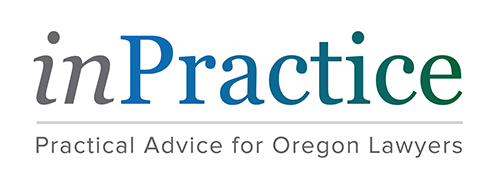If you find yourself grappling with the responsibility to safeguard original client documents, consider the following tips. They’ll not only protect your clients’ interests but will also streamline your document retention system, allowing you to “let it go” with confidence.
eDiscovery Software: Eye of the Storm
Discovery can be a major headache for law firms. The proliferation of electronic data makes it challenging for lawyers to efficiently manage all of this information. The typical discovery process can be complicated and expensive, especially for solo and small firms. Managing electronic discovery used to be seen as necessary only for large firms in complex litigation. Now, law firms of all sizes need to be able to handle eDiscovery.
Plugging the “Knowledge Drain”: How to Retain Knowledge to Ensure your Firm’s Continued Success
Law firms have always been plagued by the “knowledge drain” that happens when experienced employees retire or leave the company, taking their acquired information and established relationships when they leave. Firms must find a way to capture and retain institutional knowledge and make critical knowledge accessible to their teams if they want to ensure business continuity, provide quality legal services, and stay competitive.
Don't Underestimate the "Obvious": Document, Document, Document
Many malpractice claims arise from a client’s or third party’s allegation about what occurred, or didn’t occur, during the representation. While it may not seem necessary to document things that did not occur, or in situations involving third parties rather than just your client, proper documentation of these events can help protect you from certain malpractice traps.
Retention and Destruction of Electronic Client Files in the Cloud
As more lawyers store their electronic files in the cloud through vendors like Dropbox, Google Drive, or Box, or through practice management software like MyCase, RocketMatter, or Clio, they will eventually deal with the issue of what will happen to those files when they close their practice.
Data Hoarding: A Potential Risk for Law Firms - Part II
In my previous blog post, I discussed the risks and reasons lawyers over-save data. This post is about how lawyers can avoid hoarding data. Don’t start indiscriminately deleting or shredding files to avoid hoarding data. The process must be thoughtful and deliberate.
Data Hoarding: A Potential Risk for Law Firms - Part I
It may come as no surprise that law firms routinely store huge amounts of client and administrative data in both electronic and paper format. Although lawyers are legally and ethically required to retain certain kinds of data, some data is retained unnecessarily. When you store data you aren’t required to keep or don’t need, it’s called data hoarding.







